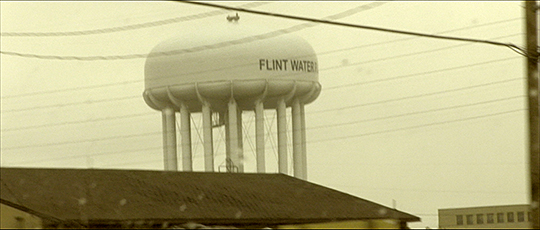“Crossing Water — Flint Michigan — 2017,” a documentary about the ongoing water crisis produced by Holly Hey, UT professor of film, will air on WGTE-TV 30 in Toledo Sunday, Sept. 16, at 5 p.m.
Hey, who is also head of the UT Film Program, worked with the nonprofit service organization Crossing Water to highlight the continuing needs and challenges facing the residents of Flint and the social service volunteers who help them. She co-produced the film with Lee Fearnside, a local artist, photographer and film producer.
 In July, the National Educational Telecommunications Association contracted with Hey for exclusive public television distribution rights of her film. The program has already aired in a few other markets around the country. The film broadcast regionally for the first time Aug. 11 on WNED in Buffalo, N.Y.
In July, the National Educational Telecommunications Association contracted with Hey for exclusive public television distribution rights of her film. The program has already aired in a few other markets around the country. The film broadcast regionally for the first time Aug. 11 on WNED in Buffalo, N.Y.
Katherine Larsen senior director of radio/TV programming for WNED said Hey’s film is a “great program on an ongoing issue. Clean water is vital to our communities, especially in the Great Lakes region.”
Flint made national news in 2014 when the city’s emergency manager switched the source of the city’s water, plaguing residents with a host of immediate and toxic problems, including deadly bacteria, outbreaks and deaths from Legionnaires’ disease, and the widespread presence of lead in the city’s drinking water.
In the film, Hey highlights the work of Crossing Water, which brings together social workers and other volunteers to provide water, services, and access to resources to the hardest hit residents of Flint. Hey weaves together multiple stories of Crossing Water volunteers, staff and Flint residents, creating a portrait of what it is like to live within an ongoing systemic disaster.Michael Hood, executive director of Crossing Water, called the film “a sobering story of the Flint water crisis.”
Hey believes all Americans should care about Flint because it’s a crisis that is indicative of the future for many U.S. communities. According to CNN, more than 5,300 municipalities around the country are in violation of lead rules.
“Eventually, systems will fail in any community, systems essential to human life like water and power. We can’t ignore that we are all vulnerable to such collapse, wherever we live in America,” Hey said.